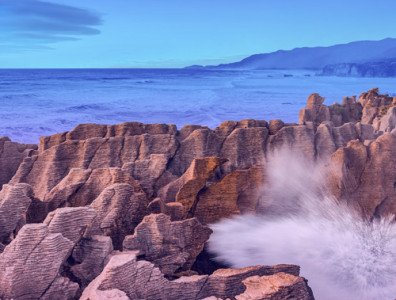Practical guidance by directors for directors on climate governance
The impacts of climate change are increasing in scope, scale, and speed. The time to debate settled science or politics has passed. Organisations need to act. Directors must guide them.
“Just start. Climate governance isn’t set and forget — it’s about trying things, learning and adapting. Capital commitments will be required to deal with climate change. The cost difference between good and average decisions will run into very large numbers,” says Scott St John CFInstD.
A director on the boards of ANZ, Fisher and Paykel Healthcare, Fonterra, Mercury Energy and NEXT, St John makes the comment in What difference can directors make?, a new guide to climate governance based on interviews with 13 of New Zealand’s most experienced directors.
The guide, developed in partnership with KPMG, Chapter Zero New Zealand and the Institute of Directors, is based on real-world examples of what boards are doing in the face of climate change risks and opportunities. For example, St John’s Fisher and Paykel Healthcare has broken long-term strategy into 10-year horizons in order better model climate change scenarios and responses.
The guide sets out a two-section roadmap for directors who want to deliver strategic climate governance. The first section brings together the views of experts from Chapter Zero New Zealand, KPMG and the Institute of Directors to outline what good climate governance looks like. It urges boards to consider:
- decarbonisation – how to reduce emissions
- transition – how to you ensure your business model is sustainable in the face of climate change
- economy-wide transformation – ensuring your organisation is contributing to building the climate-resilient future it will be operating in.
The second section taps into the thinking of directors whose organisations are already seeking to address climate challenges. It offers first-hand experience of how boards can improve climate capability and resilience in their organisations through effective climate governance.
The 13 directors interviewed are Scott St John CMInstD, George Adams CFInstD, Tony Carter CFInstD, Laurissa Cooney CMInstD, Prue Flacks CMInstD, Julia Hoare CFInstD, David Kirk, Amelia Linzey, Jackie Lloyd CFInstD, Jonathan Mason CFInstD, Dame Rosanne Meo CFInstD, Jane Taylor CFInstD and Mark Tume CFInstD.
They offer advice from a range of industries on a range of topics including:
- building board capability
- increasing climate literacy
- knowing your emissions number
- adopting a strategic timeframe.
“We are looking at a future of unprecedented economic transformation as businesses look to radically evolve and adapt to the climate crisis,” Chapter Zero NZ Chair Dame Therese Walsh CFInstD says in the guide.
“While this change can seem daunting, we encourage directors on all of Aotearoa New Zealand’s boards to realise the significant opportunity to lead and navigate the businesses they govern through this crucial period.”



